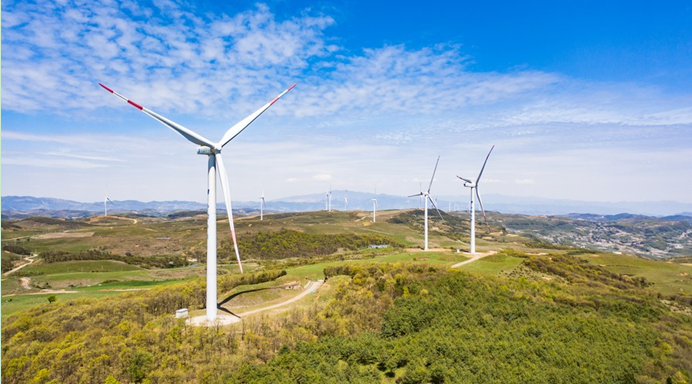Report calls for aligned response to negative effects of climate change on public health
- By Gong Yingchun
 0 Comment(s)
0 Comment(s) Print
Print E-mail China.org.cn, December 4, 2020
E-mail China.org.cn, December 4, 2020

The effects from climate change on health are increasingly prominent in China and pose a significant risk if global warming continues on the current trajectory, a new report from the medical journal The Lancet Public Health said on Thursday.
The report found that people endured an average of 13 more heat wave days in 2019 compared to in the early 2000s, posing substantial health risks to people older than 65 years old, who face a 10.4% higher risk of dying during a heat wave.
Rising temperatures and a changing climate are likely to cause more wildfires of greater ferocity as well as the spread of dengue fever, which will in turn cause profound health effects in some areas of the country, the report said.
The 2020 China Report of the Lancet Countdown on Health and Climate Change, the first of its kind, aims to track the links between public health and climate change to ensure a better understanding of their correlations and evaluate an adequate response. The report was unveiled by the newly-established Lancet Countdown regional center for Asia, based at Tsinghua University in Beijing.
In the report, scientists and health experts from 19 institutions warned that an ever-hotter world will likely produce harmful events that threaten global health and overwhelm healthcare systems unless countries worldwide take urgent action to tackle the route cause: climate change.
"Addressing converging crises could become the 'new normal' for human beings in the years to come," said Gong Peng, chair of the Department of Earth System Science at Tsinghua University and co-director of the Lancet Countdown regional center for Asia.
Given the health crises so far caused both by COVID-19 and climate change, "it is necessary for us to align our recovery from COVID-19 with our response to climate change so as to address these converging crises efficiently," Gong added.
In September, China announced its ambitious pledge to achieve carbon neutrality by 2060. "The report reveals that there will be enormous health and economic dividend from China delivering on its ambition to be carbon neutral," Gong said.
The report states that China has taken significant steps to address climate change in recent years and remarkable progress has been made in renewable energy development and air pollution control. Accordingly, these steps have been seen to reduce the negative health effects of climate change on the public by a large margin.
The study also outlines how 90% of investment in new power generation in China now goes to non-fossil fuel energy, with solar power generation growing at an unprecedented rate of 26.5% per year. Low-carbon investments are now nine times higher than those of coal, with renewable investments reaching $86.4 billion in 2019. Additionally, employment in renewable energy industries in China is higher than in any other country and accounts for a third of the global total.
China's strong policy measures have also helped the country reduce its annual average density of PM2.5 by 28% between 2015 to 2019, resulting in 90,000 fewer PM2.5-related deaths each year. Moreover, a national emissions trading scheme that will account for 33% of China's emissions is being set up and expected to commence in 2021, according to the report.
These gains, the report says, are only a fraction of what is possible, indicating that this just the beginning in terms of China's policy creation and potential action to responde to the health effects caused by climate change and COVID-19. Further steps could include hammering out terms for interdepartmental cooperation, health emergency preparedness, and suitable research support, the report suggests.
"With China currently investing hundreds of billions of dollars in COVID-19 recovery efforts as well as being expected to produce a new set of climate plans or the intended Nationally Determined Contributions (NDCs) next year, the decisions made over the coming months and years will determine the course of climate change policy for decades," said Cai Wenjia, co-director of the Lancet Countdown regional center for Asia.






Go to Forum >>0 Comment(s)